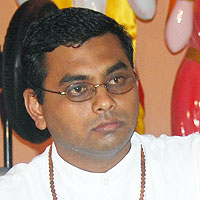Ancient Hindus have made many contributions to the world in the following fields: mathematics, medicine, astronomy, navigation, botany, metallurgy, civil engineering and the science of consciousness.
Following are some of these contributions by Hindus of ancient and mediaeval India, which have had a major influence throughout the world.
Invention of Zero: Hindus of ancient India invented “zero”, without which there would be no binary system, no computers and counting would be cumbersome.
The Hindu Numeral System: The present day decimal system, in use all over the world, was developed by Hindu mathematicians between the 1st to 5th centuries but was also in use in India since 500 BCE.
Aryabhatt (476 CE), Master Astronomer and Mathematician: Aryabhatt was the first to proclaim that the earth is round; that it rotates round its own axis and revolves round the Sun in its orbit in space. He declared this 1,000 years before Copernicus published his Heliocentric theory. Aryabhatt invented the value of PI to four decimal places, namely 3.1416 and the sine table in Trigonometry.
Patanjali (200 BCE) – Father of Yoga: The science of yoga has gained popularity because of its scientific approach and benefits as well as for its deep understanding of human psychology.
The ancient Hindus were also pioneers in amputation, caesarian and cranial surgeries.
Other pioneering ancient Hindus include:
- Brahmagupta (598 CE – 665 CE), master astronomer and mathematician
- Baudhyana (850 BCE), founder of the Pythagoras Theorem
- Bhaskaracharya II (1114 – 1183 CE), genius in algebra and astronomy and a contributor to world math
- Nagarjuna (100 CE), founder of chemical science
- Acharya Charak (600 BCE), father of medicine
- Sushrut (600 BCE), father of plastic surgery and the science of anaesthesia
- Varahmihira (499 – 587 CE), eminent astronomer
The role played by India in these developments is great and, for which, we have much to be thankful. Bottom of Form


